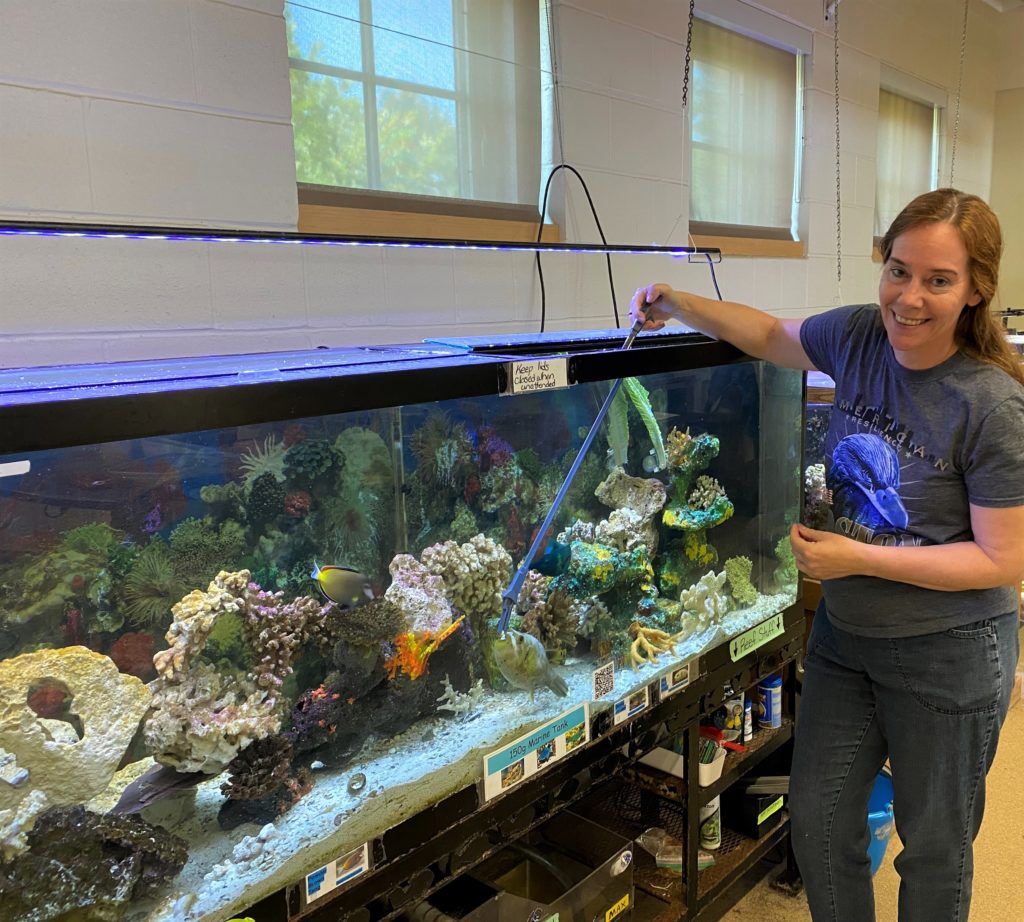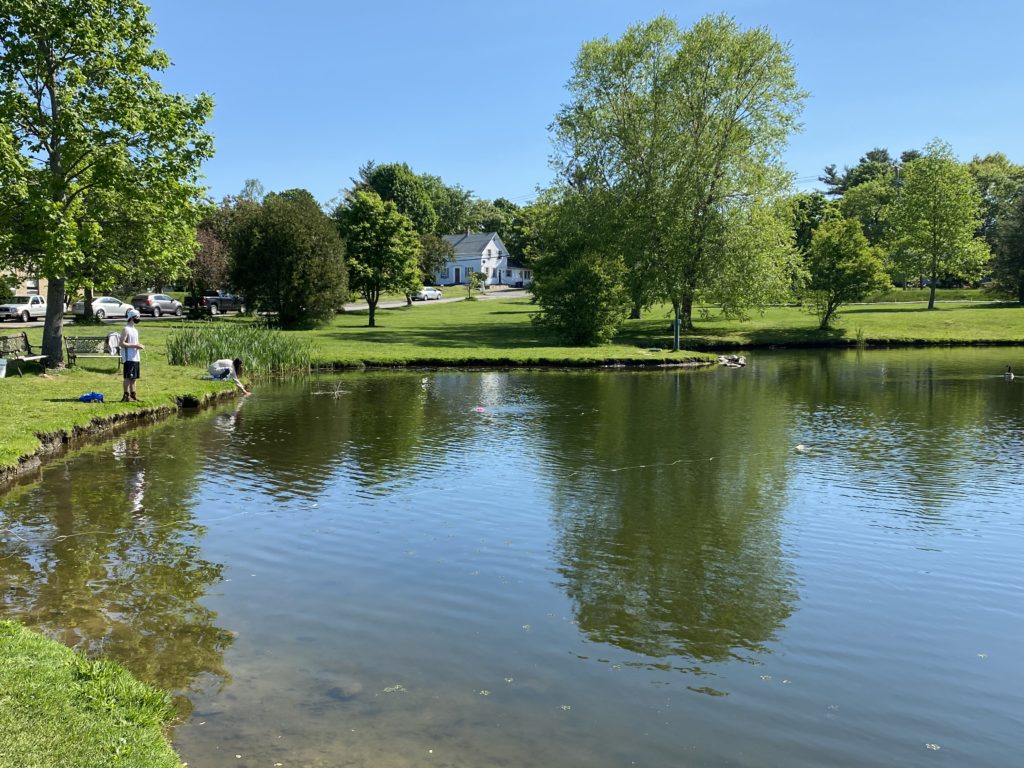Tuesday, July 6, 2021
For Immediate Release
Figuring Out What Motivates Fish:
Diane Spain and Her Students Use Inquiry to Train Animals
Walpole, MA – Norfolk County Agricultural High School is a working farm with gardens and animals, where Diane Spain and her students have trained dogs, horses, and even fish! As an Animal and Marine Science Instructor for grades 9-12, Diane teaches unique subjects such as Small Animal & Marine Science, Zoo & Exotics, Marine and Freshwater Biology, Aquatic Studies and Marine Life classes. She especially enjoys sharing her affinity for horses through equine science classes as well as incorporating environmental science and ocean stewardship topics into her marine science classes.

Diane in her aquatics lab at Norfolk County Agricultural High School
Photo courtesy of Diane Spain
Ever on the lookout for new marine science content and resources, Diane came across the Wade Institute for Science Education’s hands-on, minds-on, inquiry-based STEM professional development programs. She was happily surprised that Summer Professional Development Institutes were inquiry-based, engaging, and interactive and that participation left her pondering, “How can I be more creative in my lessons?” Diane returned for more summer learning with fellow educators and has overall participated in seven week-long institutes. “I like that your programs are hands-on, challenging, and get us out into the world around us,” she says. “I especially love the field trips and site visits to partners.”
Diane notes that the expertise provided by the Wade Institute’s partners and guest presenters has been invaluable to her teaching at a vocational school and that much of the content could be immediately applied to her animal and marine science classes. For example, a 2018 Summer Professional Development Institute site visit to YMCA’s Camp Burgess & Hayward farm left Diane feeling inspired to bring sustainable farming practices to her schoolyard. She subsequently started gardening and composting projects on campus that would involve her students in solving real-world problems like sustainable food production. “I love for the kids to learn about our own campus and how they can give back to the community,” she says.

Norfolk County Agricultural School campus
Photo courtesy of Diane Spain
During a virtual 2020 Summer Professional Development Institute, Diane learned about the New England Aquarium’s shark training program and began contemplating how to more effectively engage her students in inquiry-based learning using the many live marine animals in her classroom. Diane reached out to the aquarium to learn more about how they train sharks and was amazed when her students successfully figured out how to train fish. They observed the animals’ behavior to get a sense of what motivates them and then determined that fish could be incentivized with food to push a ball at the water’s surface or to swim through a hoop. “You can train any animal as long as you can figure out what motivates them,” Diane says about her students’ new talent.
As another summer approaches, Diane thinks ahead towards the next school year and how she might excite her students for science. In her twenty-seven years of teaching, Diane has witnessed her students excel when they take the reins of their own learning and explore science topics by carrying out inquiry-based investigations. “As long as the topic ties into my class, I let students figure it out on their own,” Diane says. Her 2021-2022 school year will likely be filled with creative, collaborative, student-led projects that spark her sense of wonder and leave her feeling fascinated at what is possible with curiosity and a can-do attitude.
###
The Wade Institute for Science Education specializes in providing inquiry-based, hands-on, minds-on, science, technology and engineering professional development for K-12 teachers and informal educators. For more information, visit www.wadeinstitutema.org or call 617-328-1515.
